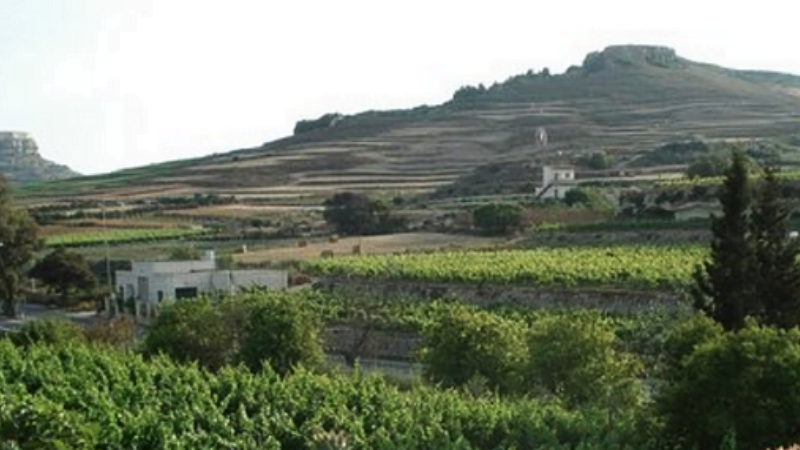Malta will need to scrape together another €48 million if it is to meet the coming years’ challenges of protecting the country’s water and air quality alone, according to the European Commission.
The cost of protecting the country’s environment is spiralling upward, the Commission found in its just-published 2022 Environmental Implementation Review for Malta, which suggested the costs of investments needed to protect Malta’s environment are to grow to 59% over the coming six-year period – leaving Malta with a €48 million environment financing gap.
The Commission has estimated the cost of the country’s environmental investments over the last six-year period (between 2014 and 2020) set the state coffers back 0.56% of the country’s gross domestic product. That funding had been almost equally spilt between EU funds and national financing.
But over the coming six-year period, between 2021 and 2027, those costs are estimated to rise by 59% to as high as 0.89% of GDP.
The European Commission points out that the €48 million financing gap is likely to become higher still when factoring in upcoming EU-level environmental requirements such as water protection, the development of the circular economy and a biodiversity strategy.
These extra items could be addressed through additional environmental financing vehicles, the Commission suggests.
Brussels also notes how Malta’s 2019 Environmental Implementation Review “had no priority actions for environmental financing”, saying “there is room for improvement in the coming years”.
The Commission called on Malta to devise an environmental financing strategy to maximise opportunities for closing environmental implementation gaps and to bring together all relevant administrative levels “as a matter of priority”.
It also urged Malta to ensure increased financing for the environment, particularly from private sources, to cover the investment needs across the environmental investment gaps.
As matters currently stand, around 69% of Malta’s environmental-protection investments in capital expenditure terms came from the government, with a further 11% from specialist private-sector producers of environmental-protection services such as waste and water companies.
A further 19% came from businesses that usually pursue environmental activities as ancillary to their main activities.
Malta’s special environmental investment needs
Malta being the smallest, most urbanised and most densely populated EU Member State – coupled with its scarcity of natural resources – “poses specific challenges to Malta’s efforts to reach a high level of environmental protection”.
While the Commission notes efforts in the Recovery and Resilience Plan, “Nevertheless, significant investment efforts are still needed” in a number of areas to support the implementation of EU environmental legislation.
One such area is in the prevention and control of pollution, where Malta will have to spend €39 million per year, including €33 million a year on capital investment, if Malta is to reach the emission-reduction requirements in the EU’s first Clean Air Outlook.
When it comes to water management, Brussels estimates Malta will need to invest an additional cumulative € 91 million by 2030 for drinking water and sanitation, over and above the previous baseline investments – amounting to some €9 million in additional capital expenditure investment a year, with over 90% of that amount related to wastewater.
The quality of groundwater in Malta is degrading due to saline intrusion and pollution by nitrates, and this may increase costs of supply in the future, the EC warned, while noting that current investments in water reuse aim to reduce pressures on the country’s groundwater resources.
When it comes to waste and the circular economy, the EC refers to its study that found that if Malta is to meet municipal and packaging waste recycling targets, it will need to invest at least an additional €34 million, around €4.9 million a year, between 2021 and 2027.
On biodiversity and ecosystems, the recently submitted prioritised action framework (PAF) for Malta shows that existing nature-protection costs (including Natura 2000 sites) between 2021 and 2027 are estimated at €181.3 million, or around €25.9 million per year.
However, the Commission warns, “more efforts may be necessary to cover the increased ambitions of the EU’s biodiversity strategy to 2030 and any relevant financing gaps on protection and restoration”.














We have to ask Joseph and Michelle Muscat, Keith Schembri, Konrad Mizzi and of course ROBBER Abela….!
These targets desperately need to be met. Not only to upgrade our tourism but for the sake of our health. Both physically and psychologically.
It is also imperative that the private sector, particularly the construction industry to finance in part this much needed targets.
Us the citizens must also do our bit. We need to waste less and ensure that we follow the rules of collection of such waste to the letter. We need to have more civic awareness and be proud of our Country.
Malta as usual will rise to the occasion.
Can be easily acquired by rescinding the money burning Vitals contract!
The news papers wrote that Air Malta will cost the government 50Million. This is where the money has gone flying!